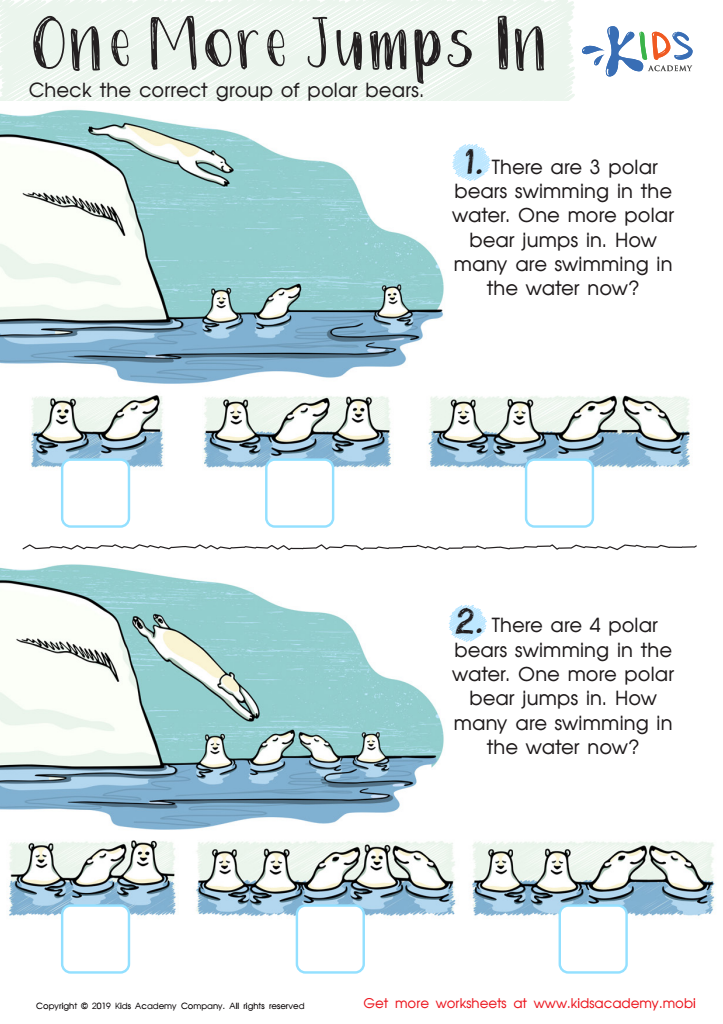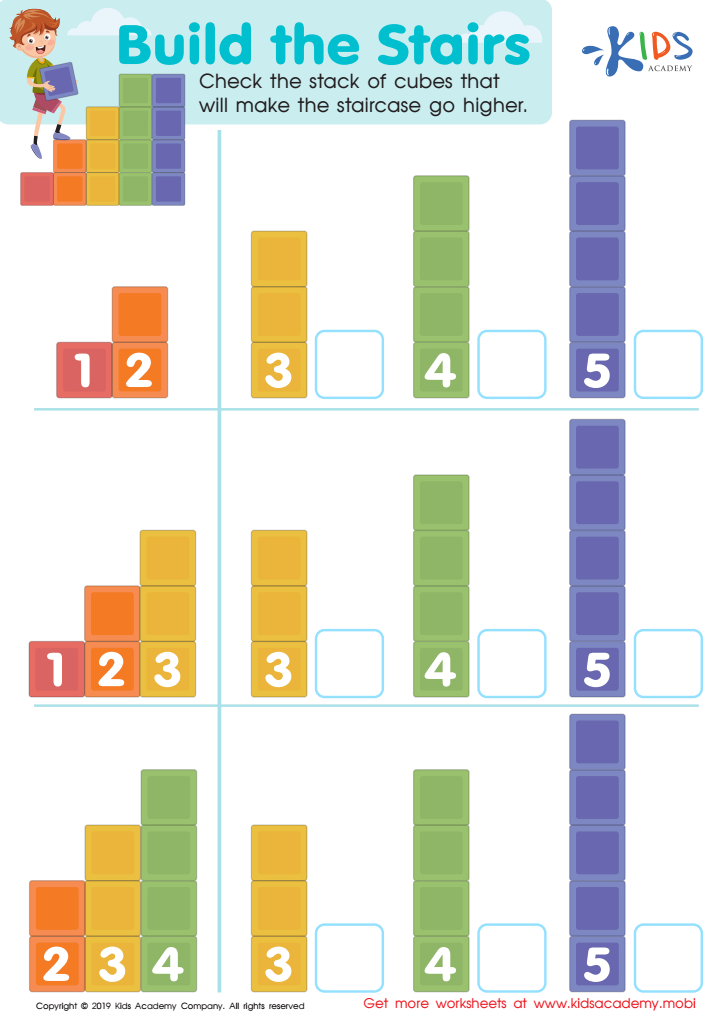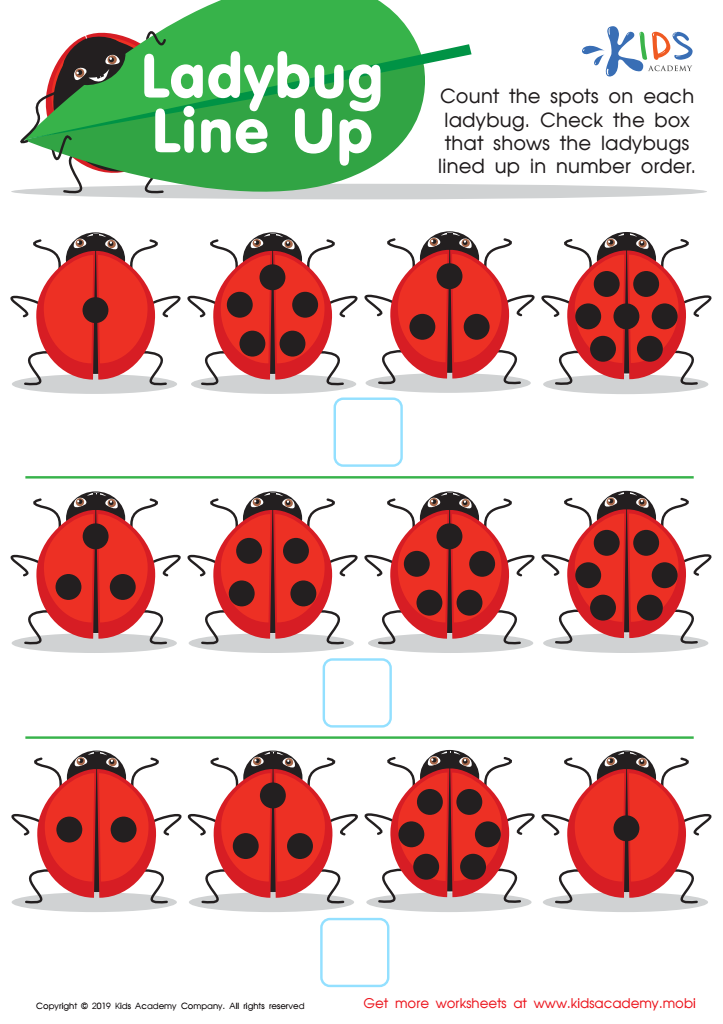Understanding sequencing Easy Numbers Worksheets for 4-Year-Olds
3 filtered results
-
From - To
Our "Understanding Sequencing Easy Numbers Worksheets for 4-Year-Olds" are specially designed to nurture foundational math skills in your child. Featuring engaging activities, these worksheets help young learners grasp the concept of sequencing, enabling them to understand and arrange numbers in the correct order effortlessly. Through fun and interactive exercises, children can practice and reinforce their counting skills while developing problem-solving abilities. These resources are ideal for both classroom and home use, making early math learning enjoyable and effective. Help your child build a solid mathematical foundation using our expertly crafted sequencing worksheets!


One More Jumps In Worksheet


Build the Stairs Worksheet


Ladybug Line Up Worksheet
Helping 4-year-olds understand sequencing and easy numbers is crucial for their early development in many ways. Firstly, it forms the foundation for mathematical skills. Sequencing—understanding the order of numbers—helps children grasp more complex math concepts later on, such as addition and subtraction.
Moreover, sequencing now can support a child's cognitive skills, particularly in problem-solving and logical thinking. Understanding sequences helps children predict patterns and understand that events unfold in a logical order. This skill is also tied to literacy development. When children learn to sequence events or steps, it enhances their comprehension skills, as they can better follow and recount stories.
Developing a strong early sense of numbers boosts a child's confidence and interest in learning. This early success often cultivates a positive attitude toward school and learning as they grow. For parents and teachers, making sure that children are comfortable with sequencing and simple numbers sets a strong educational groundwork.
In addition, early engagement with numbers supports the development of attention span and concentration. Activities like counting and sorting not only teach numbers but require children to focus, follow instructions, and complete tasks—all essential school readiness skills.
Therefore, teaching sequencing and numbers to 4-year-olds is not just about math; it's about equipping them with a range of skills essential for overall educational success and lifelong learning.
 Assign to My Students
Assign to My Students


















